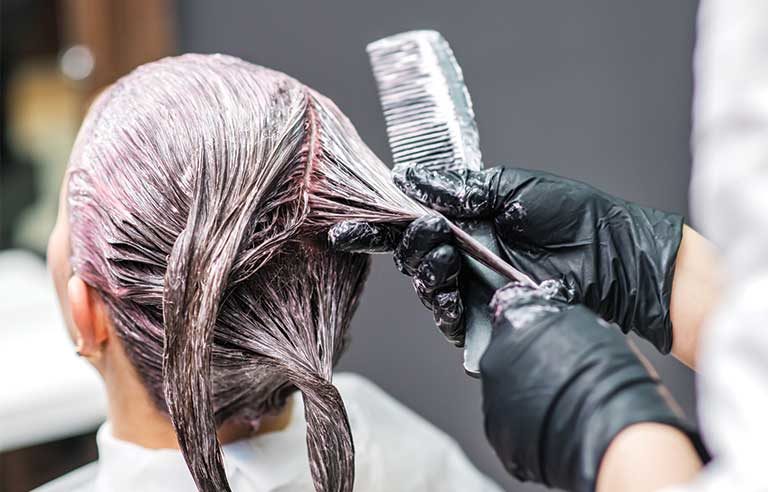Study links hair dyes, chemical straighteners to increased risk of breast cancer

Triangle Park, NC — Use of permanent hair dye or chemical hair straighteners may increase women’s risk of breast cancer – and more so with each treatment, researchers at the National Institutes of Health and the University of North Carolina caution.
The researchers used data from nearly 47,000 women between the ages of 35 and 74 enrolled in the Sister Study, which asked women about hair product use over the previous 12 months, between 2003 and 2009.
According to a Dec. 4 press release from NIH, women who reported regular use of permanent hair dye in the year prior to enrolling in the study experienced a 9% higher risk of breast cancer compared with those who didn’t use the products. No increased risk was found among women who used temporary or semipermanent hair dyes.
Among participants who used permanent hair dye every five to eight weeks or more often, African American women had a 60% higher risk compared with 8% for white women. And women who used chemical hair straighteners at least every five to eight weeks had a 30% greater risk.
“We are exposed to many things that could potentially contribute to breast cancer,” study co-author Dale Sandler, chief of the National Institute of Environmental Health Sciences Epidemiology Branch, said in the release, “and it is unlikely that any single factor explains a woman’s risk. While it is too early to make a firm recommendation, avoiding these chemicals might be one more thing women can do to reduce their risk of breast cancer.”
The study was published online Dec. 3 in the International Journal of Cancer.
Post a comment to this article
Safety+Health welcomes comments that promote respectful dialogue. Please stay on topic. Comments that contain personal attacks, profanity or abusive language – or those aggressively promoting products or services – will be removed. We reserve the right to determine which comments violate our comment policy. (Anonymous comments are welcome; merely skip the “name” field in the comment box. An email address is required but will not be included with your comment.)
